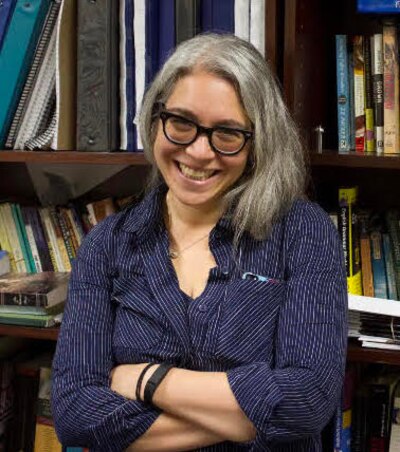Being a teacher and school leader in 2020-21 required pragmatism, sacrifice, compromise, endurance, and hope. I am exhausted. This past year reminded me of my first year in the classroom almost two decades ago. At the end of that year, I felt as though my entire sense of self had been dismantled; I no longer recognized the skin I was in. I was 22 then, and here I am, an 18-year veteran, needing to grow into myself all over again.
I have had a particular experience of this pandemic year, my own story to tell. But I am not alone. I think this historic moment begs us to think in radically different ways about what our work requires from all of us. What does it mean to educate in an era of uncertainty and loss? How can we take care of ourselves in the aftermath of this year of pandemic and unrest? What are our responsibilities to our students, our profession, and ourselves as we navigate complex and intersecting realities?

One of the beauties of working in schools is that, for many of us, summer is a reset. Already, it’s been a balm. Getting vaccinated. Hugging friends. Reuniting with family from out of town. Patio dining at the restaurants whose take-out sustained us all year. I feel some lightness returning. But with this pause, we educators also have the responsibility to use these slow, steamy weeks to do more than reset to neutral. It is our duty to ourselves and our students to process what we’ve experienced so that we can best serve our students when the new year begins.
In her book “We Want To Do More Than Survive: Abolitionist Teaching and the Pursuit of Educational Freedom,” Dr. Bettina Love writes beautifully about the importance of teacher wellness, saying, “[it] is critical to creating schools that protect students’ potential and function as their homeplace.” Yes. And this coming year, I would add that teacher wellness is critical to helping students, schools, and families imagine together what our new educational world can and should be in the aftermath of our collective trauma.
Educator wellness doesn’t just happen. It’s hard work. But there are tools that can help us get there. A few weeks ago, I had the privilege of leading a writing workshop for a small group of faculty and staff members at the school where I am an administrator. We sat in a circle and wrote about what we want to remember from this year, what we’ve already nearly forgotten, what kindnesses we’ve experienced, and what worlds we might imagine ourselves into. My colleagues wrote about birth and death, helplessness and autonomy, fear and hope — all the things their year entailed. We laughed. We cried. I was so grateful to all of them.
Inspired, I’ve been sending writing prompts out each week on social media and through a newsletter. Some of them are serious, others are more light-hearted. The responses are astonishing.
One teacher wrote: “This has been the most challenging year of my 25-year career. I had thought that this would be my last year and that I would be retiring this month. But I decided to stay. I did not want the turmoil of this year to overwhelm my memories of the years in which students showed growth, and teachers connected to each other.”
Another recalled: “I remember running as hard as I could, to prove to myself that I could still breathe. I remember recognizing that I had never worried before whether hospital care would be available to me or my loved ones if any of us got sick. I remember my students becoming far away — responses on screens, and not much more. I remember their desperation mixed with my own.”
Another still: “I walked to school one week after being vaccinated, stretching my legs in a way that felt fast and scary. I walked three flights up to my classroom breathing heavily through my mask as I reached the top. We packed away the comfy cushions and organized the tables. I started using my voice and eyes to share my love, share my hope, to connect.”
And: “For now, each night is a doorway. I can only go through one doorway at once. I can only see what is right in front of me. But I can also look back through the old doorways if I choose. I risk turning into a pillar of salt, but I must see it: who I was. I must know who I was. Because I want to take her with me through the next doorway.”
Wow.
Writing as a path to wellness isn’t for everyone (though I do think it’s magic). I started swimming laps. For others, it’s walking. Making art. Reading side by side with friends. The key is for educators to do something this summer that honors and holds the year that was and rebuilds our sense of purpose and of self so that we are ready for the school year to come.
Colleagues, you held so many people this year. This summer, I wish you rest, restoration, and healing. See you in September.
Dr. Lily Rabinoff-Goldman is Assistant Head of School for Teaching and Learning at Gann Academy in Waltham, Massachusetts. Subscribe to her teacher writing project, “Aster Weeks,” at tinyletter.com/asterweeks, or follow along on Instagram @aster_weeks.



